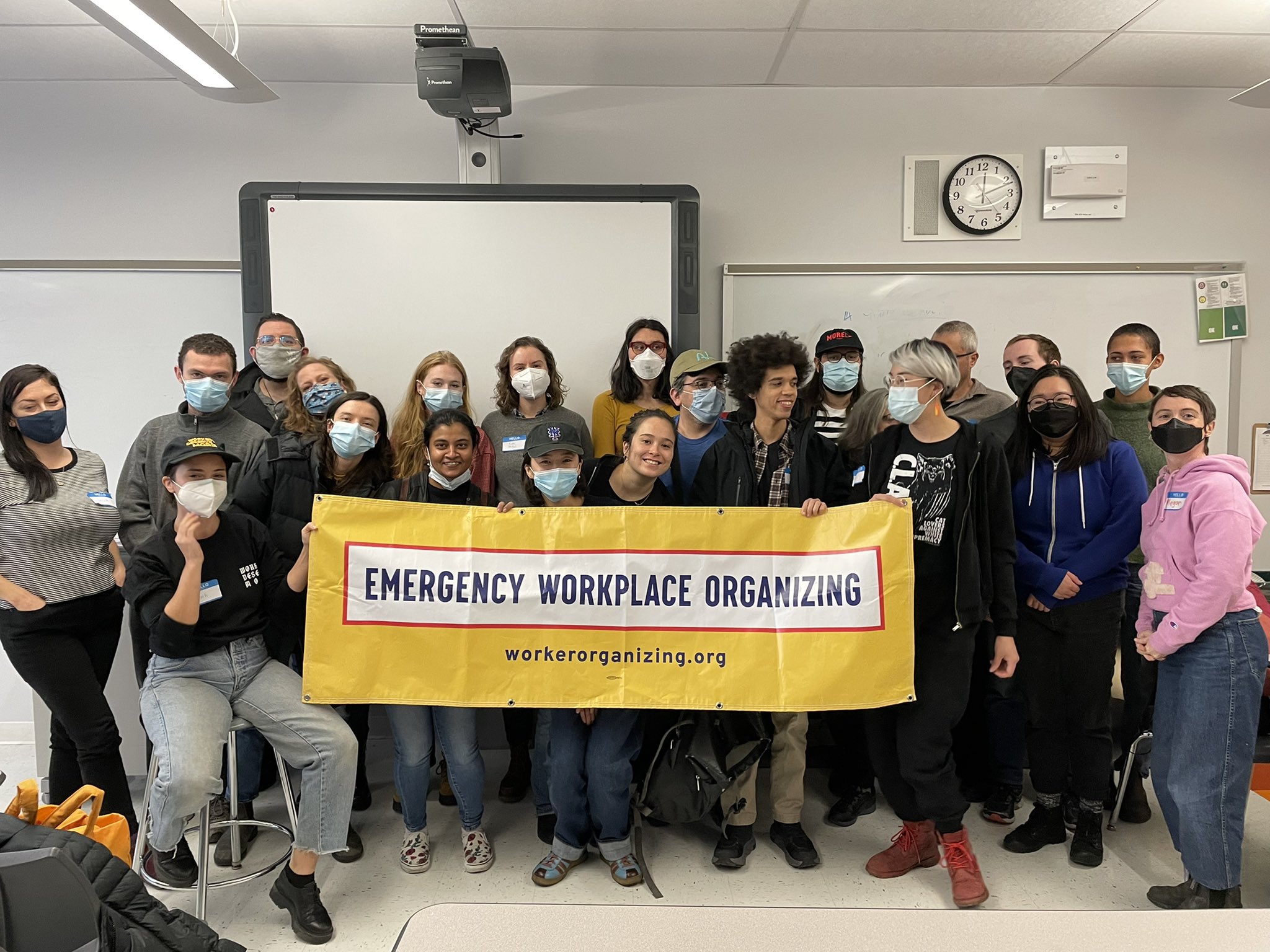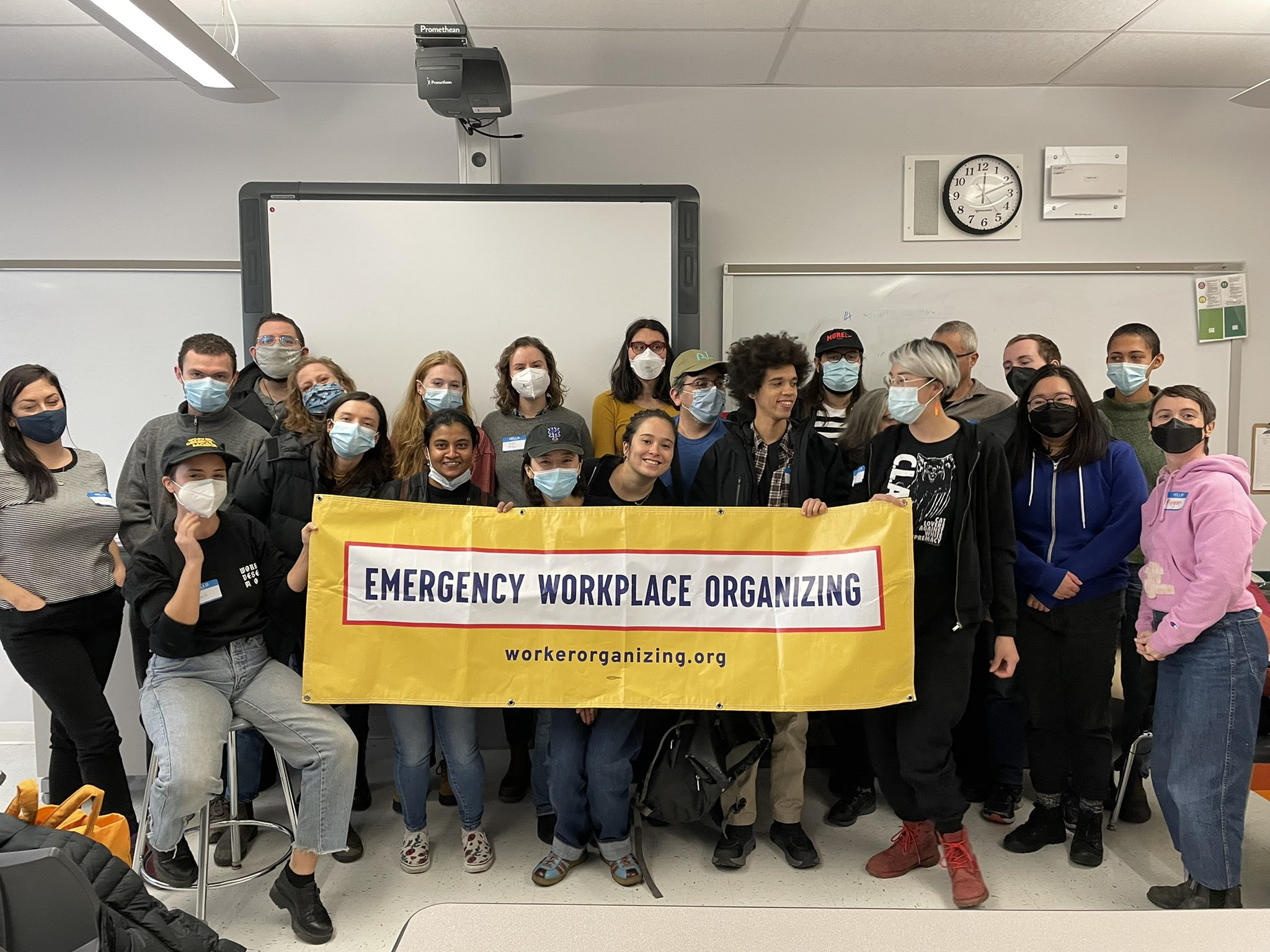New and Upcoming 🗓
Happy Thanksgiving! If you’re wondering what’s union made and what isn’t when you’re doing your grocery shopping, AFL-CIO has you covered.

For those who haven’t organized their workplace, the idea of forming a union can be scary. Anxieties surrounding collective action are understandable, and that is by design. Companies have poured hundreds of millions of dollars into anti-union consultation, union-busting campaigns, and advertisements to discourage workers from taking collective action. But despite what the capitalist class will tell you, the difference between unionized and non-unionized workplaces is clear. Union members can often expect better job security, workplace safety protections, higher wages, and access to health benefits.
It all starts with co-workers talking amongst themselves: identifying shared concerns and grievances, whether it’s unreasonable and demanding hours, unsafe working conditions, or underpaid labor. Odds are, if you’re feeling these unfair pressures, your co-workers are too. If it was up to the ruling class, we would all be paid starvation wages. But by building and using your collective power, you can ensure that you and your co-workers receive the benefits, wages, and respect on the job that you deserve.
And it is doable. Last week, workers at Vital Climbing Climbing gym in Manhattan voted unanimously to unionize with Workers United, making them the first unionized climbing gym in New York. They didn’t get there overnight. They organized, took actions prior to unionizing, and most importantly, talked to and engaged their co-workers on the shop floor at every step of the process. The task may seem great, but it always starts with just one workplace conversation.
Millions of workers want more than what they’re getting. If you’re one of them and you think other people at your job might be too, you can organize, and you can win. You just have to take the first step.
World of Work 🌍
Missouri: Workers at an Apple retail location in St. Louis filed for a union election last week, seeking to join comrades in Towson, Maryland, in affiliating with the International Association of Machinists and Aerospace Workers. If successful, workers will form the third new bargaining unit of Apple Store employees in the U.S. this year and the fourth including workers at a location in Glasgow, Scotland.
U.S.: More than 1,000 Starbucks Workers United rank and file workers at more than 100 separate stores went on strike last Thursday on the company’s “Red Cup” giveaway day, one of its busiest each year. Workers used the coordinated mass action to highlight demands for full staffing, safer working conditions, an end to retaliations, and good-faith bargaining for a first contract, among others.
U.S.: The largest railroad workers union, SMART-TD, has voted to reject a tentative contract agreement while BLET, the second largest union, has voted to approve the agreement. Three other unions have also rejected the contract. Despite the split votes, if SMART-TD or other unions strike, all the rail unions have agreed to honor the picket lines.
New York: More than 250 HarperCollins employees remain on strike after authorizing an indefinite strike in October. Workers are demanding livable wages and have highlighted the exclusionary effect of poor conditions in the publishing industry. “It shouldn’t only be people who have wealthy partners or parents who can stay in the industry,” said Laura Harshberger, an editor at HarperCollins Children’s Books.
Week in Labor History 📚
November 22, 1919: The New York Shirtwaist strike of 1909, also known “the Uprising of the 20,000,” begins as female garment workers walked off the job. Workers, mostly immigrants and almost entirely women, had been made to endure abysmal working conditions for years, often working 75 hours a week for meager pay. As the name suggests, 20,000 workers took part in the strike, making it the largest women-led labor action up to that time. After three months, the company agreed to a renegotiated contract, with better pay and hours for the workers. The strike caused some controversy at the time (one judge reportedly told arrested strikers, “You are on strike against God”), but has since been seen as a landmark event in both the labor movement and the fight for women’s rights.
Solidarity,
Team EWOC




